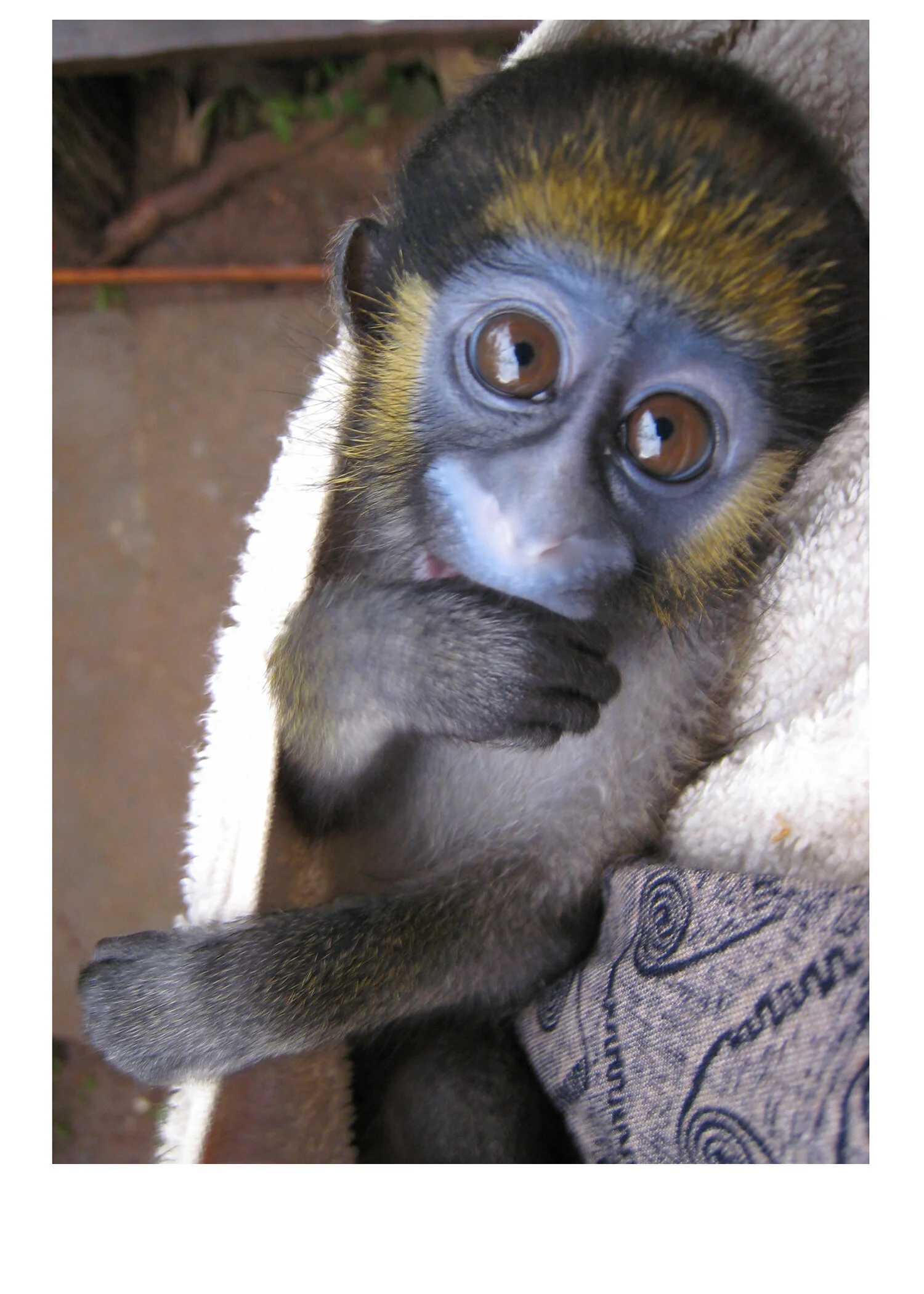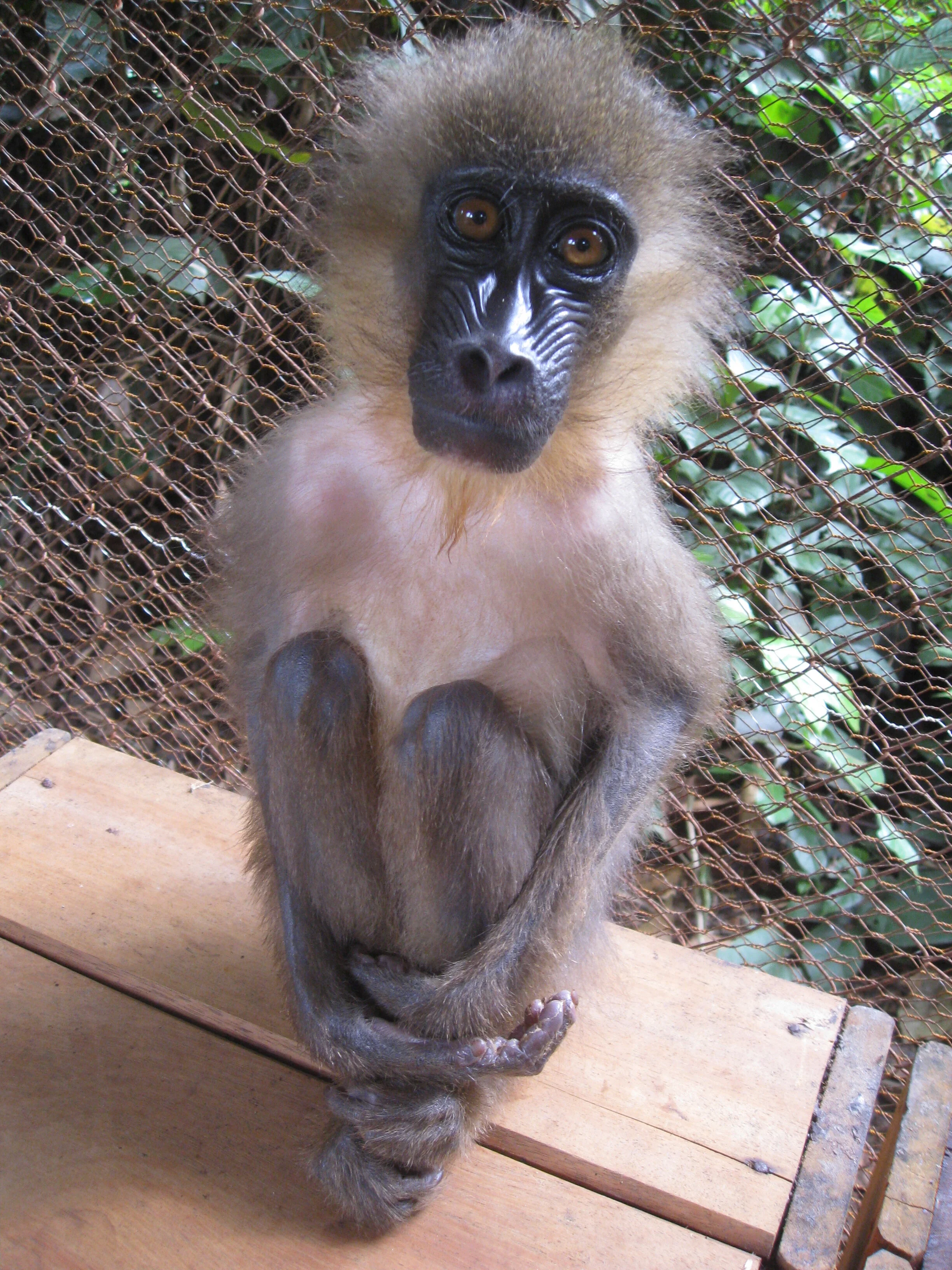We Must Give a Voice to Abused and Abandoned Primates
By Robin Huffman, Safina Center Fellow
Volunteering at primate sanctuaries caring for the monkeys and apes I paint is a very large part of what informs my portraits. I often spend months with them, seven days a week, cleaning their cages and habitats; laundering swaddling cloths and hammocks; selecting, preparing and serving their food and drink, offering bottles of milk hourly through the night; gathering fresh leaves, branches and other forest treasures; spending hours observing them and figuring out safe and intriguing enrichment options to keep these highly intelligent and emotional beings stimulated and thriving.
Moustache monkey Maasai. Photo: Robin Huffman
It is always with mixed feelings when I see a primate brought to a sanctuary, knowing that once these orphans arrive, they will be as safe and as cared for as the sanctuaries can possibly manage, but at the same time angered and mourning the often tragic circumstances that caused them to need to be rescued in the first place.
Frodo the mandrill. Photo: Robin Huffman
Here is how I often think of it:
We donʼt know their stories. We know what the people who bring them TELL us. But that is often not the truth. And some come to the sanctuary with no history at all, dropped off secretly. The only thing we know about them then is their physical and emotional condition, their illnesses and wounds, physical and psychological.
Emilie the Agile Mangabey. Photo: Robin Huffman
Why did Bertie the chimpʼs owners cut his ears off?
Bertie. Photo: Ape Action Africa
Why was Patates the female baboon kept in a welded metal drum for 10 years?
Why was Legolas the vervet monkey housed in a cage so small for so long that heʼs deformed?
They look straight at us. They see us. But do we see them? Everything in their world was taken from them by humans, and the rest of their lives will be unnatural. They have lived through unspeakable events. Even so, we often sense they forgive us.
Rocky the chimp. Photo: Robin Huffman
We know their stories from the point they arrive at the sanctuary. And then we can tell their stories. We MUST tell their stories. We must be their voice in the world.





